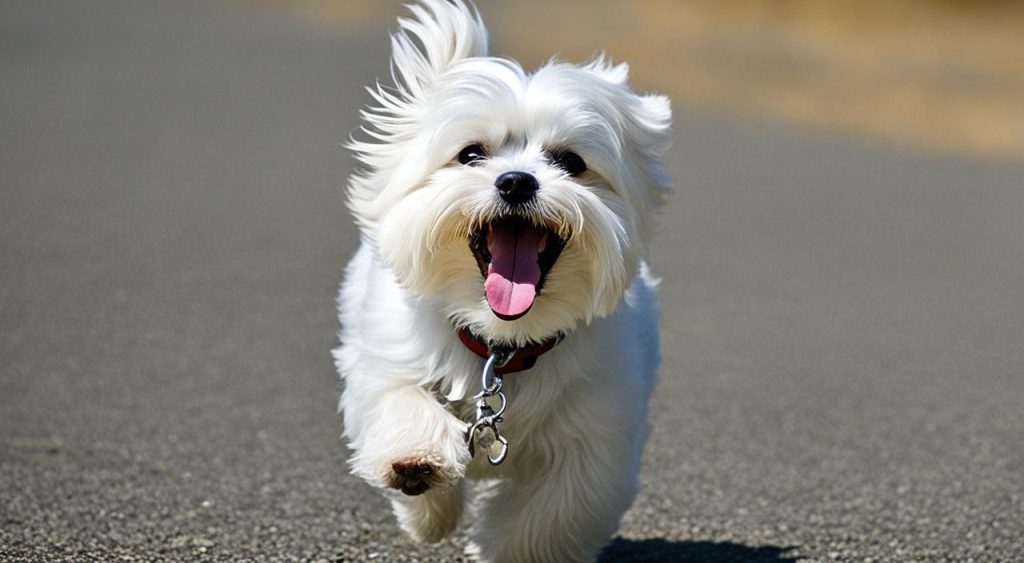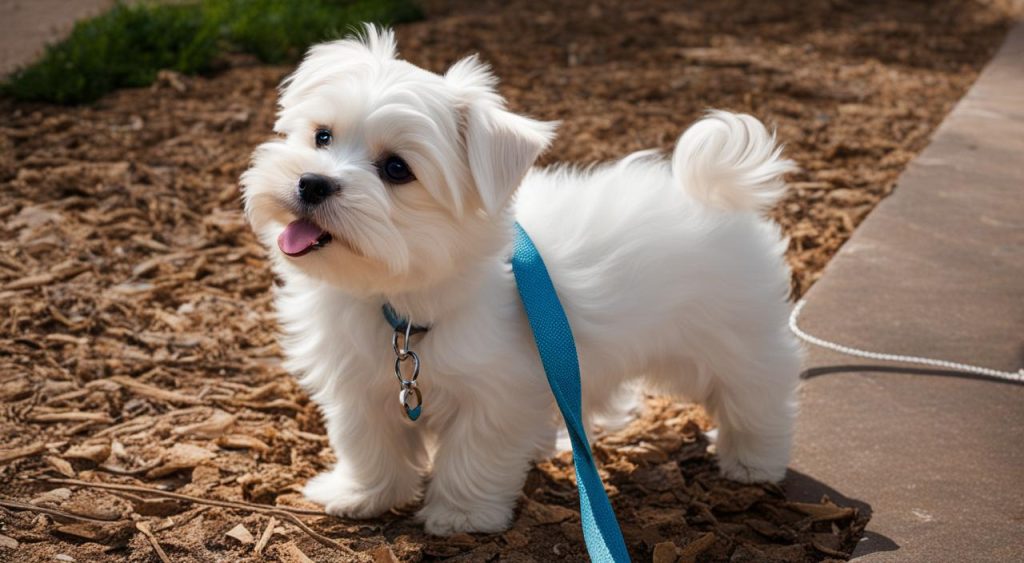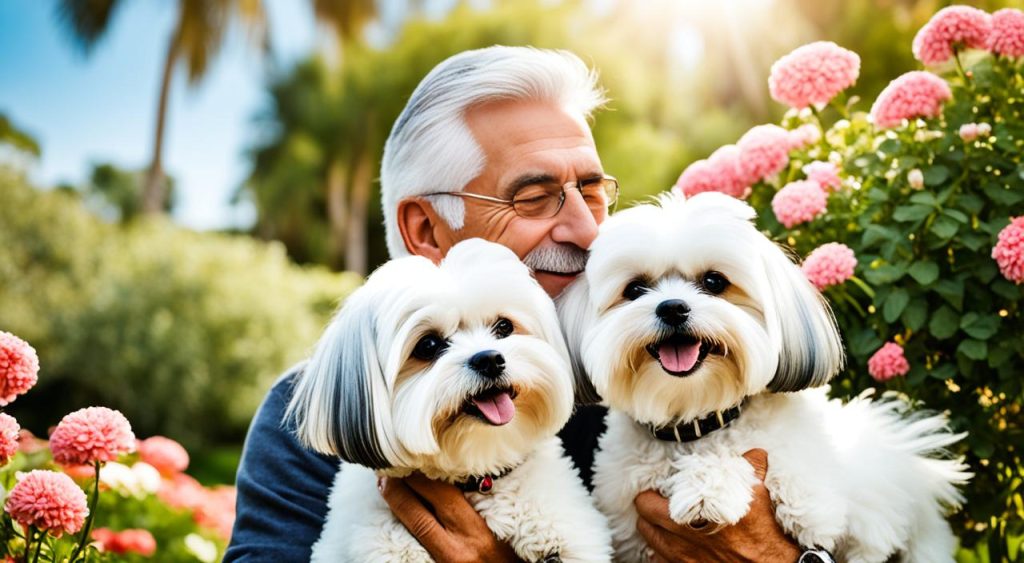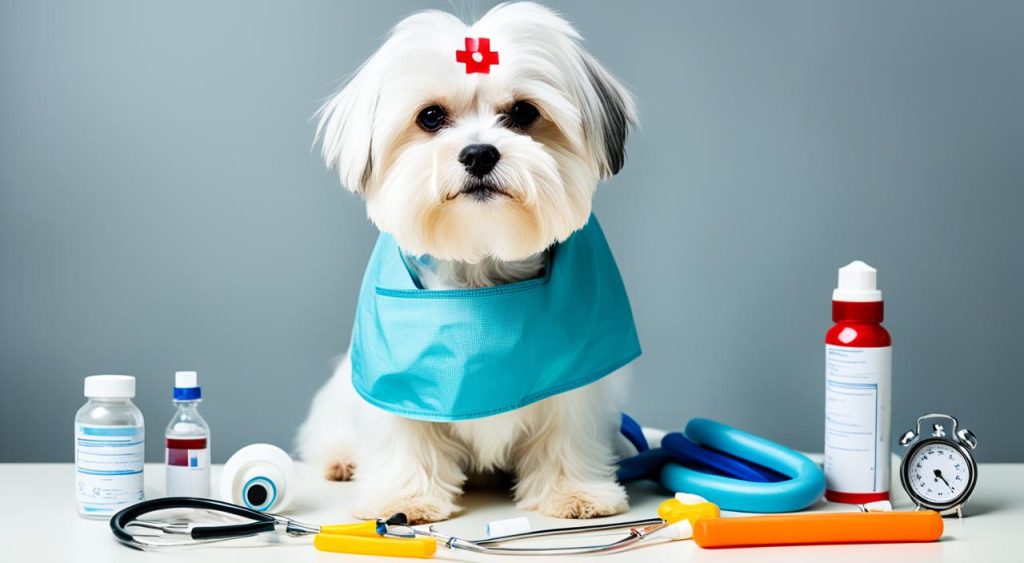Maltese dogs are known for their charming and playful personality, but one question that many potential owners have is whether or not they drool excessively. While all dogs drool to some extent, it is important to understand what is considered normal for the Maltese breed and when excessive drooling may indicate a problem. In this article, we will explore the factors that can contribute to drooling in Maltese dogs and provide tips on how to manage this behavior.
Key Takeaways:
- Drooling is a natural behavior in Maltese dogs, but excessive or abnormal drooling may be a sign of an underlying health issue.
- Normal drooling in Maltese dogs can occur when they are anticipating food, excited, or stressed.
- Abnormal drooling in Maltese dogs should be monitored closely and veterinary advice sought if it persists or is accompanied by other symptoms.
- Understanding the breed characteristics of Maltese dogs can help put drooling behavior into context.
- Proper care and maintenance, including regular veterinary check-ups, grooming, and appropriate exercise, are essential for the overall health and wellbeing of Maltese dogs.
Normal Drooling in Maltese Dogs
Drooling is a natural and necessary phenomenon for dogs, including Maltese. There are several normal situations in which a Maltese may drool, such as when they are anticipating food or when they are excited or stressed. This drooling is often referred to as the “Pavlov reflex” and is a normal response of the saliva production system in the dog’s mouth. Understanding these normal situations can help differentiate them from abnormal drooling.
When a Maltese is anticipating food, their mouth may begin to water in preparation for eating. This is a natural response known as the Pavlov reflex, named after Russian physiologist Ivan Pavlov. Pavlov discovered that dogs would salivate at the sound of a bell when they associated it with food, even if the food was not present. Maltese dogs may display this reflex when they hear the sound of their food being prepared or when they see their food bowl.
Additionally, Maltese dogs may drool when they are excited or stressed. This could be during playtime, when meeting new people or dogs, or in unfamiliar or stimulating environments. Excitement and stress can trigger an increase in saliva production, causing the Maltese to drool. It’s important to note that drooling in these situations is normal and temporary.
By understanding the normal drooling patterns of Maltese dogs, you can differentiate between normal and abnormal drooling. If your Maltese drools when anticipating food or during exciting or stressful situations, there is usually no cause for concern. However, if your Maltese begins drooling excessively or drools consistently without any obvious triggers, it may be a sign of an underlying health issue or dental problem. In such cases, it is recommended to consult with a veterinarian for a proper diagnosis and guidance.
Abnormal Drooling in Maltese Dogs
While some drooling is normal, excessive or sudden drooling in Maltese dogs can be a cause for concern. It may indicate underlying health issues such as difficulty swallowing, stomach problems, oral or dental problems, or even poisoning. It is important to pay attention to any changes in drooling patterns and seek veterinary advice if abnormal drooling persists or is accompanied by other symptoms.
Excessive drooling in Maltese dogs can be a sign of trouble. If your Maltese is drooling excessively or suddenly, it could signal an underlying health issue that needs to be addressed. Some potential causes of abnormal drooling in Maltese dogs include difficulty swallowing, stomach problems, oral or dental problems, or even poisoning. It’s important to be vigilant and observe any changes in drooling patterns to ensure the well-being of your beloved pet.
Drooling is a normal phenomenon, but when it becomes excessive or sudden in Maltese dogs, it could be a red flag. Abnormal drooling can indicate a range of health issues, such as difficulty swallowing, stomach problems, oral or dental problems, or even poisoning. If you notice that your Maltese is drooling excessively or experiencing a sudden increase in drooling, it’s important to pay attention and seek veterinary advice. Timely intervention and proper diagnosis can help address the underlying cause and provide appropriate treatment.
If your Maltese starts drooling excessively or shows a sudden increase in drooling, it’s important not to ignore it. Abnormal drooling in Maltese dogs can be indicative of various health issues, including difficulty swallowing, stomach problems, oral or dental problems, or even poisoning. To ensure the well-being of your furry friend, monitor any changes in drooling patterns and seek veterinary advice if necessary. Remember, early detection and treatment can significantly improve your Maltese’s quality of life.
Excessive drooling in Maltese dogs is a cause for concern. If your furry companion is drooling excessively or suddenly, it could be a sign of underlying health issues. Difficulty swallowing, stomach problems, oral or dental problems, or even poisoning can all contribute to abnormal drooling in Maltese dogs. To ensure the well-being of your precious pet, it is important to observe any changes in drooling patterns and consult a veterinarian if necessary. They will be able to provide a proper diagnosis and recommend appropriate treatment to address the underlying cause.
What to Do If Your Maltese Drools Abnormally
If you notice that your Maltese is drooling abnormally, it is important to take certain steps. First, try to understand the situation in which the drooling occurs and assess if it is abnormal.
Take your Maltese’s temperature and check their heart rhythm to determine if there are any other signs of illness. Abnormal drooling can sometimes be a symptom of an underlying health issue. By monitoring your dog’s vital signs, you can gather more information and provide helpful details to your veterinarian.
If the abnormal drooling persists or is accompanied by other symptoms, it is crucial to seek veterinary advice and explain the symptoms you have observed. A professional veterinarian will be able to conduct a thorough examination and diagnose any potential health issues that may be causing the abnormal drooling.
Maltese Breed Characteristics
To better understand the drooling tendencies of Maltese dogs, it is important to familiarize yourself with the breed characteristics. Maltese dogs are small in size, with an average height of 7-9 inches and a weight of less than 7 pounds. They have a long, silky coat that requires regular grooming. The breed has a charming and playful personality, although they can be stubborn at times. Understanding these characteristics can help put the drooling behavior into context.
Potential Health Issues in Maltese Dogs
While Maltese dogs are generally healthy, it is important to be aware of potential health issues that can affect the breed. Regular monitoring and veterinary check-ups are essential to maintain their overall health and wellbeing.
One common health issue in Maltese dogs is patellar luxation, which is the dislocation of the kneecap. This condition can cause pain, lameness, and difficulty in walking. Early detection and proper treatment are crucial to prevent further complications.
Heart anomalies are another concern in Maltese dogs. They may be born with congenital heart defects or develop heart disease later in life. Symptoms such as coughing, difficulty breathing, and fatigue should not be ignored and require immediate veterinary attention.
Liver problems can also occur in Maltese dogs, including liver shunts or liver disease. These conditions can affect their overall health and digestion. Regular bloodwork and monitoring of liver function are important to identify and manage these issues.
It is important to remember that every dog is unique, and not all Maltese dogs will experience these health issues. However, being aware of them and taking proactive steps to monitor your dog’s health can ensure early detection and effective treatment, if needed.
Basic Care for Maltese Dogs
Proper care and maintenance are crucial for keeping Maltese dogs healthy and happy. Here are the key aspects of basic care for your Maltese companion:
Feeding
Provide your Maltese with a balanced diet that is appropriate for their age and size. Consult with your veterinarian to determine the best type of food and feeding schedule for your dog. Avoid overfeeding to maintain a healthy weight and prevent obesity.
Grooming
Regular grooming is important to keep your Maltese’s coat in good condition. Brush their long, silky fur daily to prevent matting and tangling. Bathe them occasionally using a mild dog shampoo. Trim their nails regularly and clean their ears to prevent infections.
Exercise
Maltese dogs may be small, but they still need regular exercise to stay fit and stimulated. Take them for daily walks, play interactive games, and provide them with toys that challenge their mental abilities. Remember to adjust the intensity and duration of exercise based on your dog’s age and physical condition.
Veterinary Visits
Regular veterinary check-ups are essential for monitoring your Maltese’s overall health and detecting any potential issues early on. Follow your veterinarian’s recommended vaccination schedule and make sure your dog receives preventive treatments for fleas, ticks, and other parasites. Keep up with dental care, such as teeth brushing or professional cleanings, to maintain good oral health.
By following these basic care guidelines, you can ensure that your Maltese dog remains healthy, happy, and well-cared for.
Conclusion
Drooling is a common behavior in Maltese dogs, but it is important for owners to be aware of what is considered normal and when it may indicate an underlying health issue. While some drooling is expected, excessive or abnormal drooling should be taken seriously and addressed promptly.
If your Maltese is drooling excessively or if the drooling is accompanied by other concerning symptoms, it is crucial to seek veterinary advice. A veterinarian can assess your dog’s overall health and determine the underlying cause of the excessive drooling.
By providing proper care, such as regular grooming, a balanced diet, and regular veterinary check-ups, you can help manage and maintain the overall health and wellbeing of your Maltese companion. Being proactive and vigilant about your dog’s health will ensure that any potential issues are addressed promptly, allowing your dog to live a happy and healthy life.





